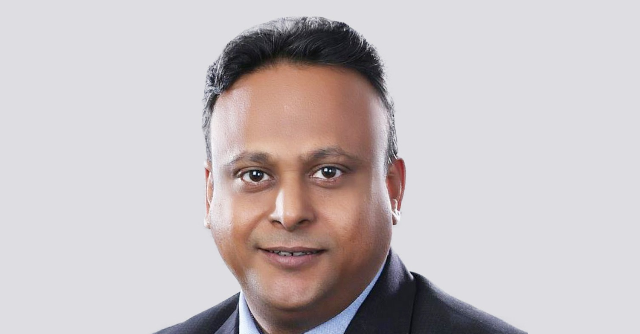
We’re betting on AI, RPA to become agile and customer-centric: ManipalCigna CTO


In the fast-evolving world of health insurance, staying ahead requires a transformative change, prompting insurance firms to invest more in advanced technologies. In a recent interview with TechCircle, Sumeet Agarwal, Chief Technology Officer of ManipalCigna Health Insurance, a joint venture between the Bengaluru-based Manipal Group and US-based healthcare and insurance firm Cigna, explains how the company is using artificial intelligence (AI), data science and robotic process automation (RPA) to streamline its various processes and become more agile and responsive to customer needs. Edited excerpts:
What technologies excite you most for your organisation and the health insurance sector?
Needless to say, AI is playing a crucial role in personalising customer experiences by analysing large data sets to predict health trends and customise insurance products. For example, they can identify potential health risks, enabling us to offer proactive health management solutions. Additionally, RPA, Data Science, and Analytics enhance transaction transparency and security, which are vital for building client trust. By leveraging these technologies, we aim to improve operational efficiency and provide a more personalised and secure service, ultimately transforming the health insurance landscape.

Has the company seen any changes in tech investments since the pre-pandemic period?
The Covid-19 pandemic underscored the need for rapid digitisation and a shift towards advanced technologies, especially AI. We have shifted our focus from traditional tech solutions to AI-driven tools that enhance customer engagement and operational efficiency. For instance, we implemented AI-based analytics to better understand customer behaviour and preferences, allowing us to tailor our offerings more effectively. We have also invested in digital platforms that enable seamless online interactions, such as our mobile app for real-time claims tracking and policy management. This transition not only improves customer experience but also streamlines internal processes. Overall, our strategic shift towards AI and digitisation has positioned us to respond more agilely to market demands and customer expectations in a post-pandemic world.
What is your tech team like in terms of size and skillsets? Are you planning to expand next year?

Our tech team consists of over 100 professionals with diverse skill sets, including software development, data analytics, cybersecurity, and project management. Each member contributes unique expertise to our innovative projects. In the coming year, we plan to expand our team by hiring new talent with specialised skills in emerging technologies like AI and data science. Additionally, we are committed to upskilling our existing employees through targeted training programs to keep them at the forefront of industry developments.
What kind of innovation are you bringing with technology?
We are leveraging technology to drive innovation in impactful ways. For instance, our AI-driven fraud detection models have significantly reduced claims leakage and increased operational efficiency by automating detection processes. Our AI-based recommendation engine provides customers with tailored health insurance solutions based on their health profiles. Furthermore, we developed a comprehensive mobile app that offers real-time access to policy information and claims tracking, greatly enhancing user experience. Another notable example is our implementation of Natural Language Processing (NLP)-powered chatbots, available 24/7 to address customer inquiries, resulting in improved satisfaction ratings. We have also adopted robotic process automation (RPA) to streamline backend processes and accelerate claims processing times. We also introduced E-Naach, a module for customers to register for e-mandates, ensuring automatic premium payment debits.

On a scale of 1 to 10, where would you place your organisation in terms of digital transformation, and how did you achieve that?
I would rate ManipalCigna’s digital transformation journey an 8 out of 10. We have made significant progress by integrating advanced technologies into our operations and customer interactions over the past few years. This achievement involved a strategic focus on digital initiatives that enhance operational efficiency and improve customer engagement through personalised services. Continuous customer feedback has also been crucial in refining our digital strategies, ensuring alignment with their needs throughout this transformation.
When looking at competitor benchmarking, which key technology areas need improvement?

To remain competitive, we must leverage AI across key business areas. AI's evolving capabilities can drive operational efficiency, improve decision-making, and enhance customer experiences. A critical area is Medical Relevancy, where AI can accurately interpret doctor's prescriptions, medical records, and diagnostic reports. This will streamline claims processing, validate medical expenses efficiently, and reduce manual errors and fraud, leading to faster, more reliable claims outcomes and improved customer satisfaction. Furthermore, AI integration across core processes—such as underwriting, claims management, customer support, and policy recommendations—is essential. AI-driven solutions can automate routine tasks, enhance risk profiling, and deliver personalised policy suggestions. Adopting advanced AI capabilities like NLP for seamless customer interactions and predictive analytics for real-time decision-making will position us to lead market innovation. By focusing on AI for medical relevancy and business integration, we can streamline workflows, improve accuracy, and deliver smarter, customer-centric solutions, ensuring we stay ahead of the competition.
Which technology areas will you focus on in the next year and why?
In the coming year, our technology focus will revolve around enhancing operational automation and efficiency across the company with the help of advanced analytics, AI-driven tools, data science, and RPA. We aim to implement advanced RPA solutions to further expedite claims processing and minimise errors associated with manual handling. Additionally, we plan to invest in AI-driven tools to identify operational inefficiencies, enabling us to optimise workflows and improve service delivery. By automating key processes, we expect to enhance accuracy and reliability, ultimately leading to a better customer experience. We will also prioritise training our staff on these new technologies to ensure they effectively leverage these advancements. We aim to create a more agile organisation with these technologies that can help us deliver exceptional value to our customers.

